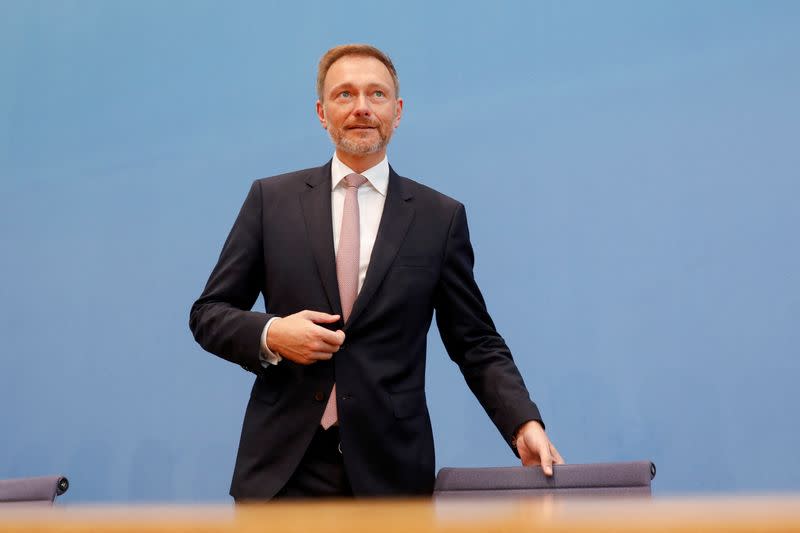Germany tells ECB: We're doing our bit to fight inflation
BERLIN (Reuters) -The European Central Bank need not worry about Germany's budget when making policy to fight inflation in the euro zone, German Finance Minister Christian Lindner said on Friday, presenting plans to return to national debt brake rules in 2023.
Lindner said the 2023 draft budget, marked by consolidation efforts, took away the risk of so-called "fiscal dominance" - when central bank independence can be compromised by the high cost of servicing governments' sovereign debt.
"We want to send a clear signal with this budget: we are doing our homework," Lindner told reporters after the cabinet backed the draft budget plans.
Of the ECB, he added: "It does not have to take the federal budget into account when fighting inflation because we ... are reducing our deficit and returning to the debt brake."
The debt brake rule, temporarily suspended due to costs associated with the coronavirus pandemic, limits new borrowing to a tiny fraction of economic output.
Lindner, of the business-friendly Free Democrats (FDP), has repeatedly pressed the ECB to tackle rising prices, saying last month that it "very, very, very much has a responsibility to take measures to get inflation under control".
Euro zone inflation hit yet another record high in June as price pressures broadened, firming the case for rapid ECB rate hikes starting.
Around 50 billion euros less would be spent in 2023 than planned for this year, Lindner said. Net new borrowing would fall from 140 billion euros for 2022 to 9.9 billion euros.
Some 7.3 billion euros in loans to the International Monetary Fund and the Health Fund will also be financed via new borrowing, bringing the total to 17.2 billion. But Lindner said the government would book these loans outside the debt brake.
Though marked by consolidation, the draft budget was still "crisis proof", Lindner said.
(Writing by Miranda Murray and Paul Carrel; Editing by Rachel More and Alison Williams)

 Yahoo Finance
Yahoo Finance 

